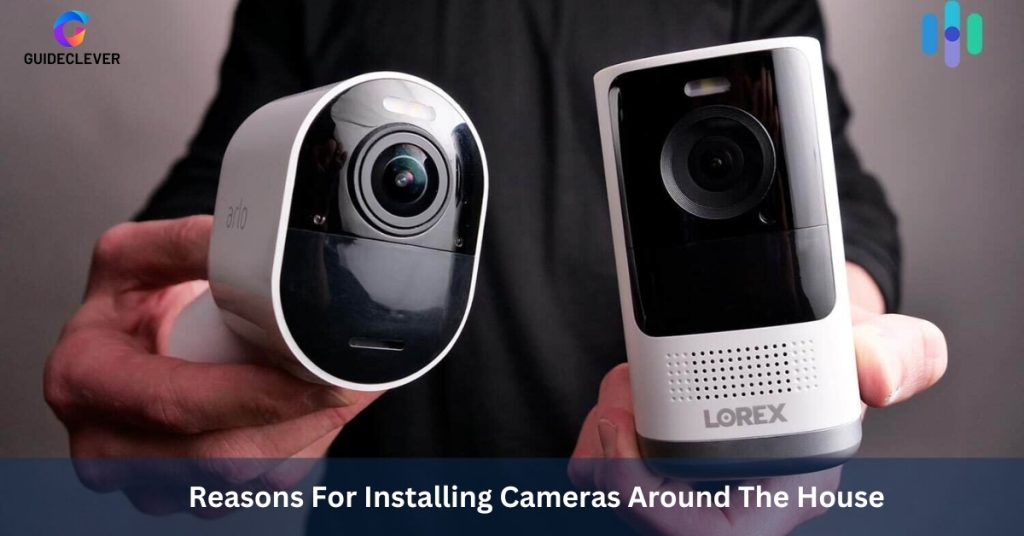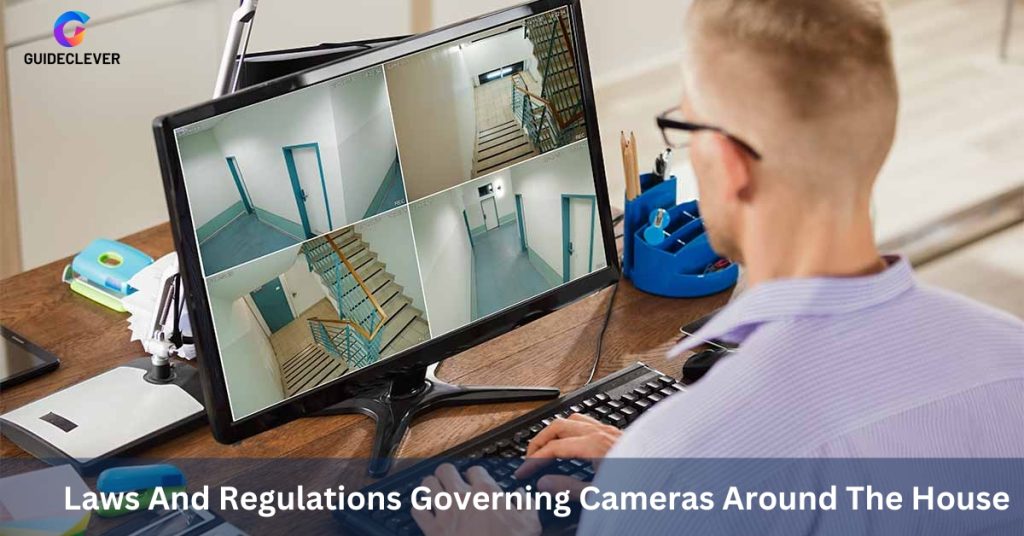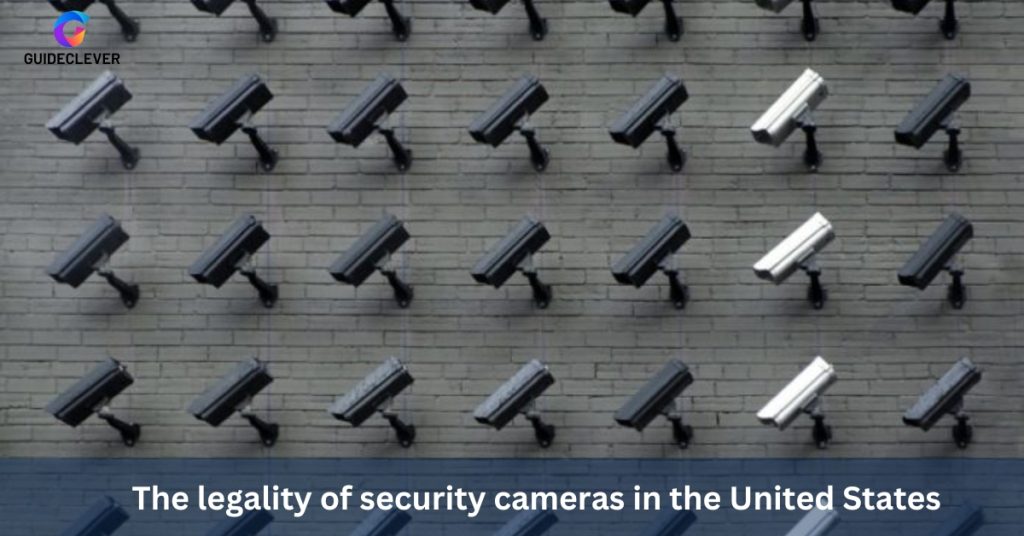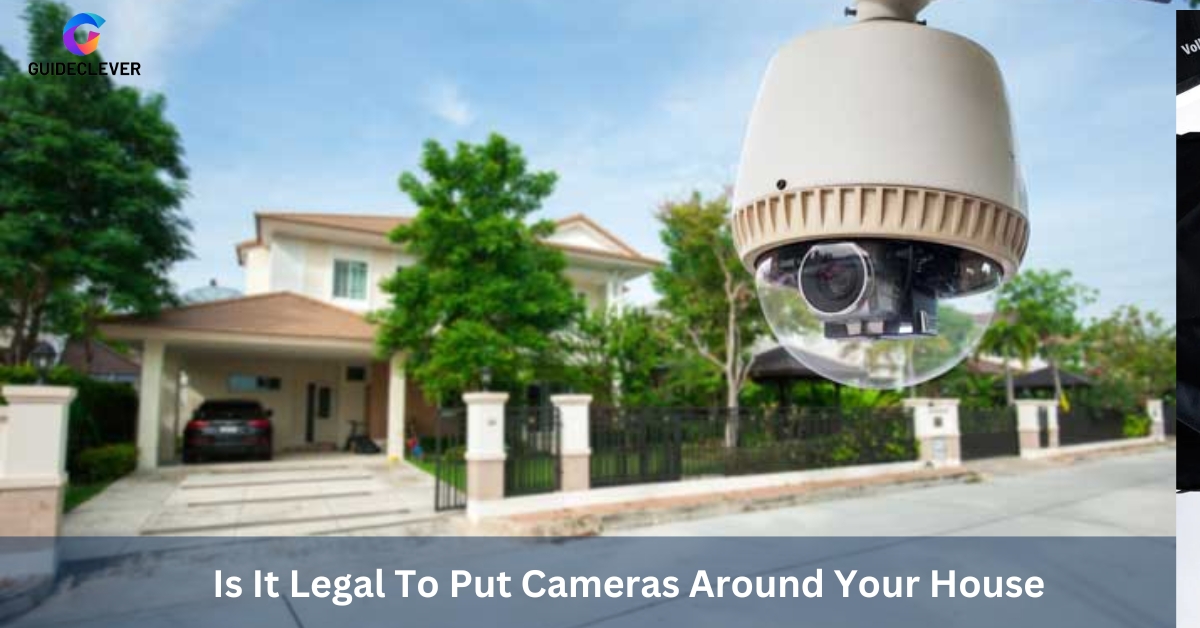Security cameras in and around the home have become more common in recent years. In general, it is legal to put cameras around your house. Due to the advancement of technology, the cost of video surveillance equipment has become more affordable. A security camera makes it easy to protect home property from theft or vandalism. There are some limitations, though, so be aware of them.
This article will show the legality of installing a security camera in a home. If you want to know more, keep reading this post.
Contents
Reasons For Installing Cameras Around The House – [ 5 Reasons]
People choose to place cameras all over their homes for various reasons. A few of these are:

To Enhance Security And Deter Crime
Use cameras to prevent burglaries and other criminal activity in your neighbourhood. They can assist you in keeping an eye on your home’s vulnerable regions if you have the correct system. Additionally, it can warn you if something seems fishy.
To Monitor Family Members Or Employees
Let’s say you have housekeepers or other workers who come and go. After that, cameras can be used to monitor their behavior. This enables you to check that they are carrying out their duties properly.
To Provide Evidence In An Insurance Claim
Suppose you experience a theft, fire, or any other incident that insurance may cover. Having all this video evidence will give priority to support your claim. It is possible with a security camera. It can help get the money needed to repair or replace a damaged item.
To Track Pets Or Wildlife
Cameras can be a terrific way to watch your pets or the local wildlife. They might be utilized to monitor your pet when you are away or to search for any signs of wildlife activity.
To Record Special Events
Suppose you want to capture a special moment and remember it forever. For example:
- Cameras are weddings
- birthday party
It can record events like anniversaries, graduations, and more.
It is essential to research your local laws and regulations. You must do it before installing security cameras on your property. This will help ensure that you are complying with the law. And stay away from any future issues that might arise. Laws and rules about cameras are covered here.
Laws And Regulations Governing Cameras Around The House [ 4 Basic laws and Regulations]

Sometimes neighbors use security cameras. This used camera can be a threat to other neighbors. As a result, the neighbor’s camera has to be blocked by law. Here is a brief overview of the laws and regulations governing cameras around the house:
Federal Laws
The federal government has several laws that regulate the use of cameras. It includes:
- The Electronic Communications Privacy Act (ECPA)
- The Video Privacy Protection Act (VPPA)
- The Children’s Online Privacy Protection Act (COPPA).
State and Local Laws
Many states and cities have laws that control the usage of cameras in addition to federal rules. States may have quite different directions on this. It is crucial to review the legal requirements in your particular jurisdiction.
Privacy concerns
Camera use may raise privacy concerns. For instance, many people need help with how their personal information is used, as someone may use it without their consent. Be aware of these concerns. It’s also essential to protect people’s privacy when using cameras.
Restrictions on video surveillance
The use of video surveillance is subject to several regulations. For instance, recording individuals in private spaces. Such as:
- Restrooms
- Bedrooms
- Dressing rooms
It is typically forbidden. People cannot be recorded without their permission.
Awareness of the laws and regulations governing the use of cameras around the home is essential. By following these laws and regulations, you can help protect your privacy.
The legality of security cameras in the United States

Here are some general guidelines for the legality of security cameras system in the United States:
Public areas
You can generally record video or audio in public areas without consent. This includes sidewalks, streets, parks, and other sites that are open to the public.
Private property
On private land, you often require the owner’s permission before recording audio or video. This covers private residences, companies, and other locations.
Workplaces
Employers are generally allowed to install video surveillance in the workplace. However, they must give employees notice about this before installing cameras.
Schools
Schools are typically authorized to install cameras in condo, classrooms and halls in public spaces. However, they need to abide by some guidelines when using these cameras.
In this space, you can set up a security camera as soon as possible.
Employing Technology To Abide By The Law When Using Cameras Around The House
When using cameras around your home, it is crucial to follow the law. You can do this with the aid of technology. Here are some ideas for using technology to make sure you are abiding by the law:
Privacy Settings
Most security cameras come with privacy settings. You can manage who sees and has access to the video. You can restrict who can view your video recordings by utilizing these options. Thus, it aids in safeguarding individuals’ privacy.
Motion-Activated Cameras
Motion-activated cameras are a great way to ensure you only record when necessary. These cameras will begin recording if they notice movement. It can help reduce the amount of footage that you need to review.
Blurring Or Pixelating Faces
You can blur or pixelate faces using some security camera capabilities. This can be useful if you wish to safeguard people’s privacy while on your land.
Signage And Notifying Those On Camera
Posting notices that the area being watched around your apartment is bright. This will serve to deter illegal behavior by alerting people that they are being recorded. Anyone on your property should be informed that they are being videotaped.
Avoiding Covert Surveillance
Avoiding utilized cameras for clandestine monitoring. It is crucial because this practice can be prohibited in many areas. Before installing any security cameras, make sure to check your state’s legislation.
By adhering to these recommendations, you can be sure that any cameras you use around your home are legal.
Conclusion
In conclusion, it is generally legal to put cameras around your house. However, When installing security cameras, following local legislation is crucial. As well as take steps to protect people’s privacy. This can include using privacy settings and motion-activated cameras. Following these guidelines can help ensure you use cameras responsibly and legally.


